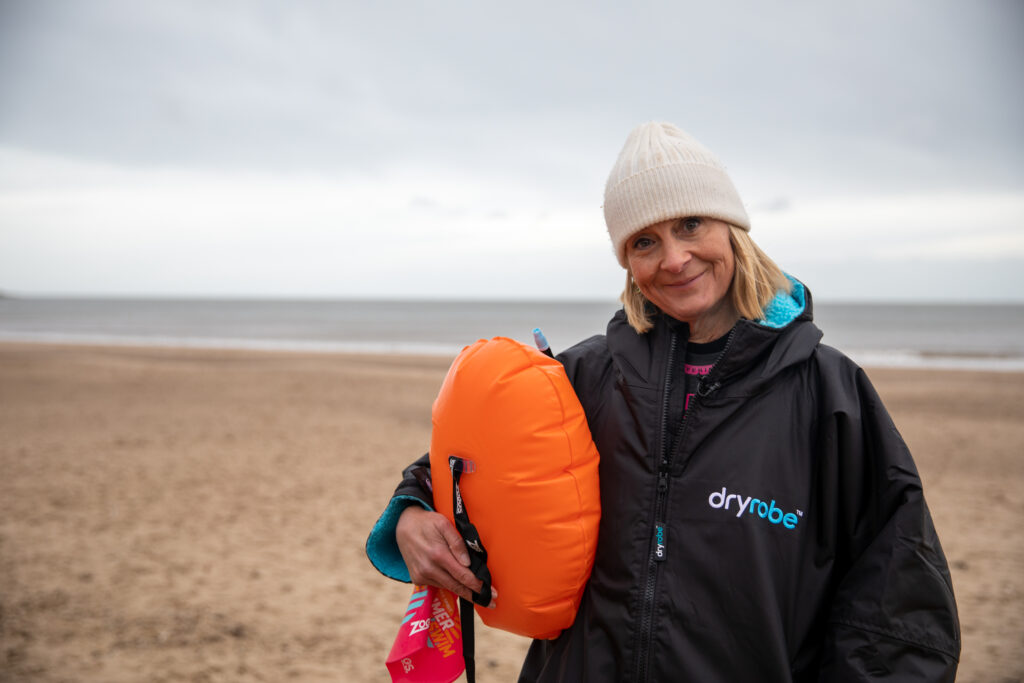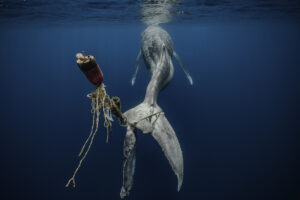BBC presenter warns of risks of cold water swimming

Former BBC Breakfast presenter and keen open water swimmer Louise Minchin has teamed up with the Royal National Lifeboat Institution (RNLI) to remind anyone planning a winter plunge to be aware of the risks as water temperatures reach their coldest in March.
Minchin was a fixture on the famous BBC Breakfast red sofa for 20 years before leaving her early morning presenting role in 2021.
Now the experienced triathlete has joined forces with the RNLI to help educate people on the precautions they can take to stay safe and have an enjoyable time when going for a swim or dip at the coast.
Minchin recently joined RNLI Water Safety Lead Nick Ayres to talk about open water swimming, dipping and how she stays safe.
On 10 December, Walmer inshore lifeboat rescued a swimmer off the Kent coast more than a mile and a half from where they initially entered the water. The man was found floating on their back, unresponsive but breathing.
While in Whitby, North Yorkshire, just two days after Christmas, a man was in the water for 90 minutes before being rescued.
The man rescued by Whitby RNLI said: “I realised that I was quite far out. I swam towards shore for 20 minutes but I didn’t seem to be getting any closer. It’s then that I started to panic.
“Although I was wearing a wetsuit, I was getting colder and colder, and it was then that I thought – ‘this is it’. I really didn’t expect to finish my life here. I knew I couldn’t hold on for much longer. Despite having 20 years’ experience of open water swimming, things can change so quickly, and you can get caught out. I will be forever grateful to the RNLI for saving me that day.”
“I love the sea, it’s my absolute passion,” says Minchin. “To go open water swimming allows me some time to myself with no interruptions – doing it safely though is my number one priority.”
Michin advises caution when swimming, even for those experienced with open water. “People probably think that because I do Iron Man events I’m really tough and would go diving straight in, but there is no way I would do that. I’m a confident swimmer, but anyone can get in trouble, and it could happen when you least expect it,” she says.
“When you first get in, the water temperature can take your breath away, even on the most beautiful, calm days,” Minchin continues. “I just ease myself in gently, toes first, knees, hands, just everything really slowly. In some ways it makes it feel harder but that’s the way I always get in – it just eases my whole body in and allows me to enter calmly.
“For a swim I always go prepared. I’ll wear a wetsuit, and my friends often comment how far away they can see me as I wear a brightly coloured swim cap and take a bright coloured float with me. I never go alone, I either swim with somebody, or someone is ashore and knows my plan – and of course, if anything happens or I see someone else in trouble I’d call 999 to get help underway.”
RNLI safety tips for taking a winter swim or dip:
Before you go:
- Cold water immersion does have risks, speak to doctor first, especially if you have a health condition.
- Assess the conditions before getting in. If it is too rough for swimming, don’t get in.
In the water:
- Wear a wetsuit and brightly coloured swim cap, take a tow float and a means of calling for help with you.
- Acclimatise slowly to reduce the risk of cold-water shock.
In an emergency:
- Float to live if you get into trouble – lean back in the water, extending your arms and legs to gain control of your breathing
- Call 999 or 112 and ask for the Coastguard – if you get into difficulty or see someone else in trouble call for help immediately.










